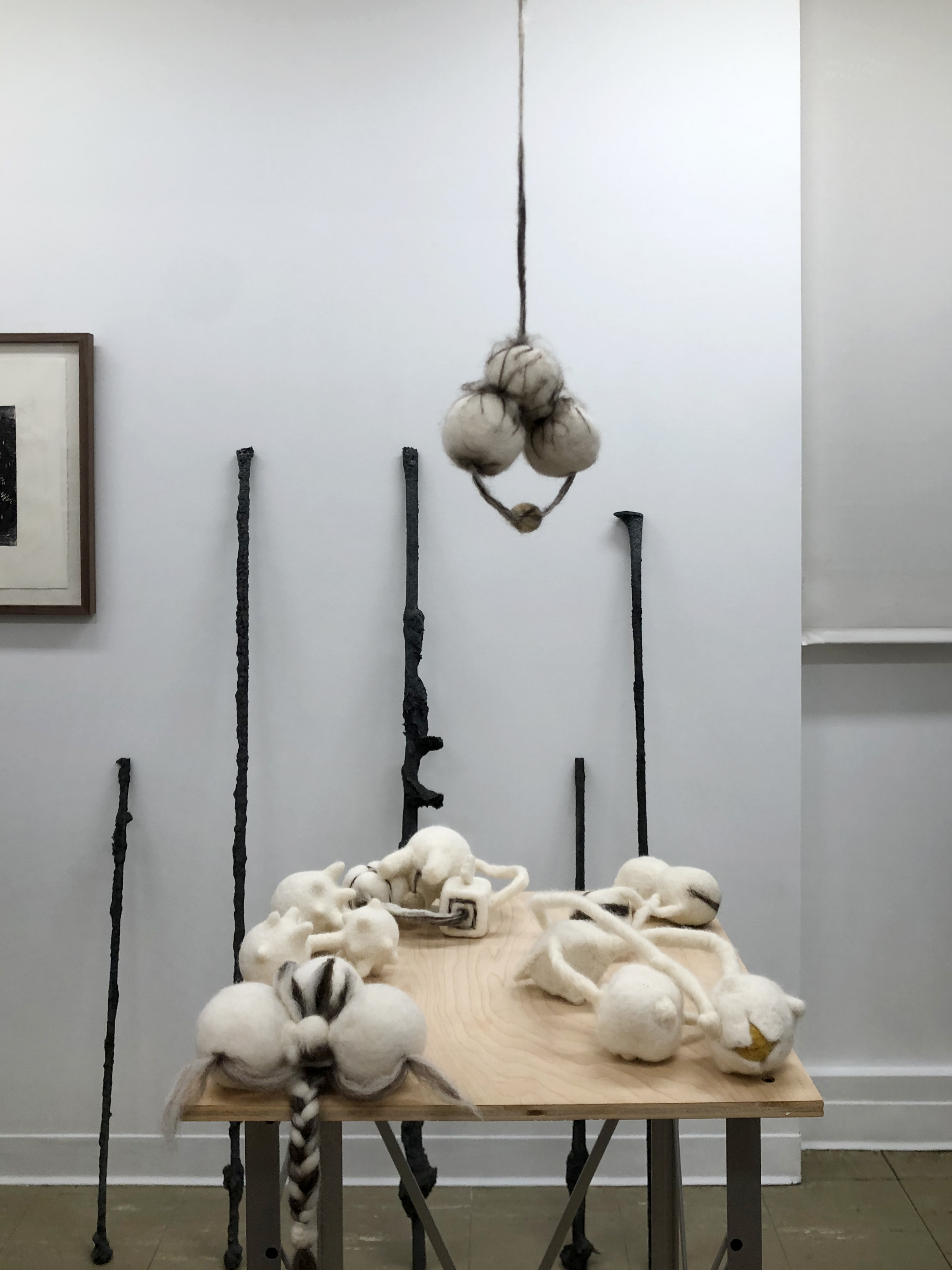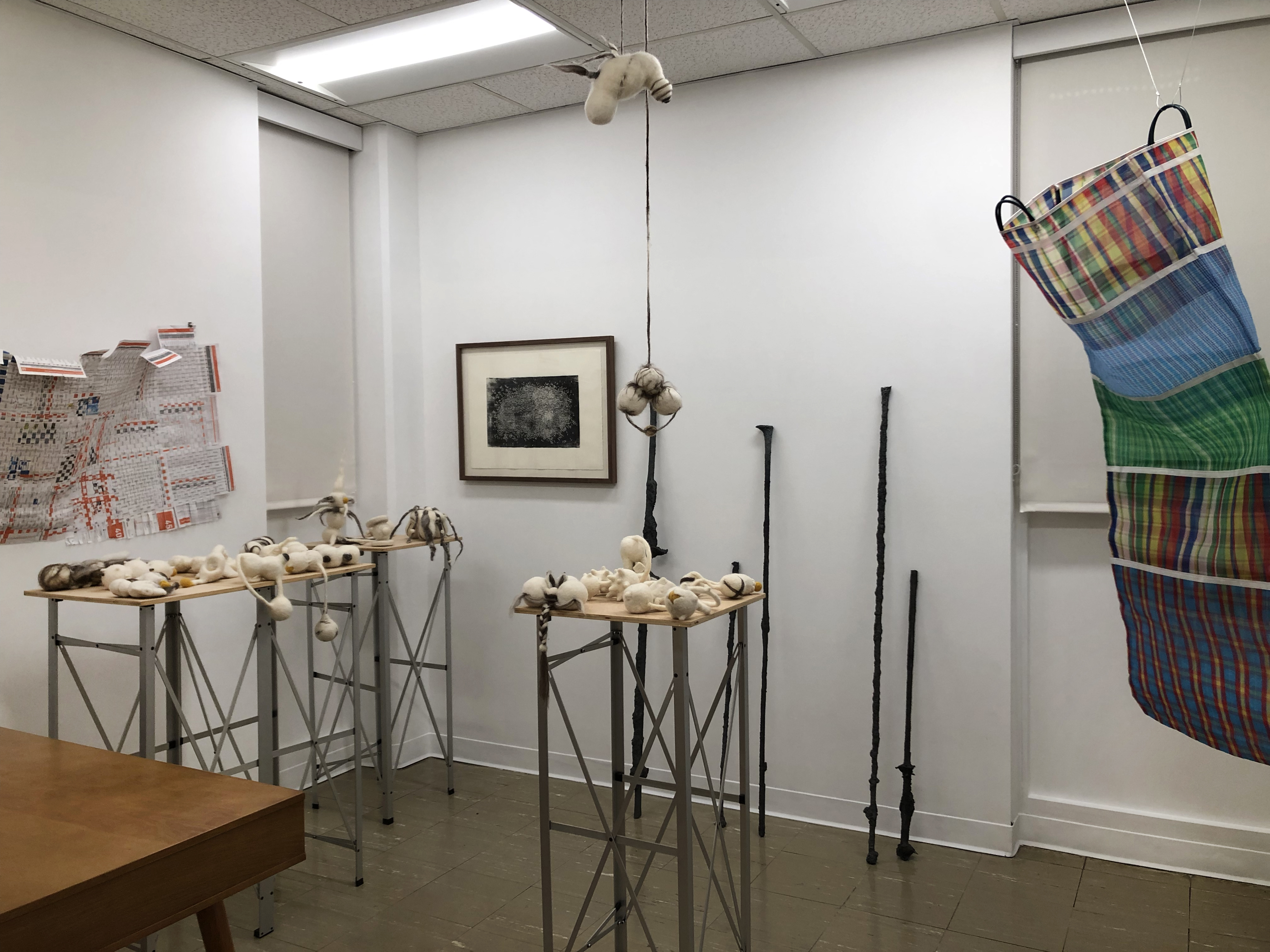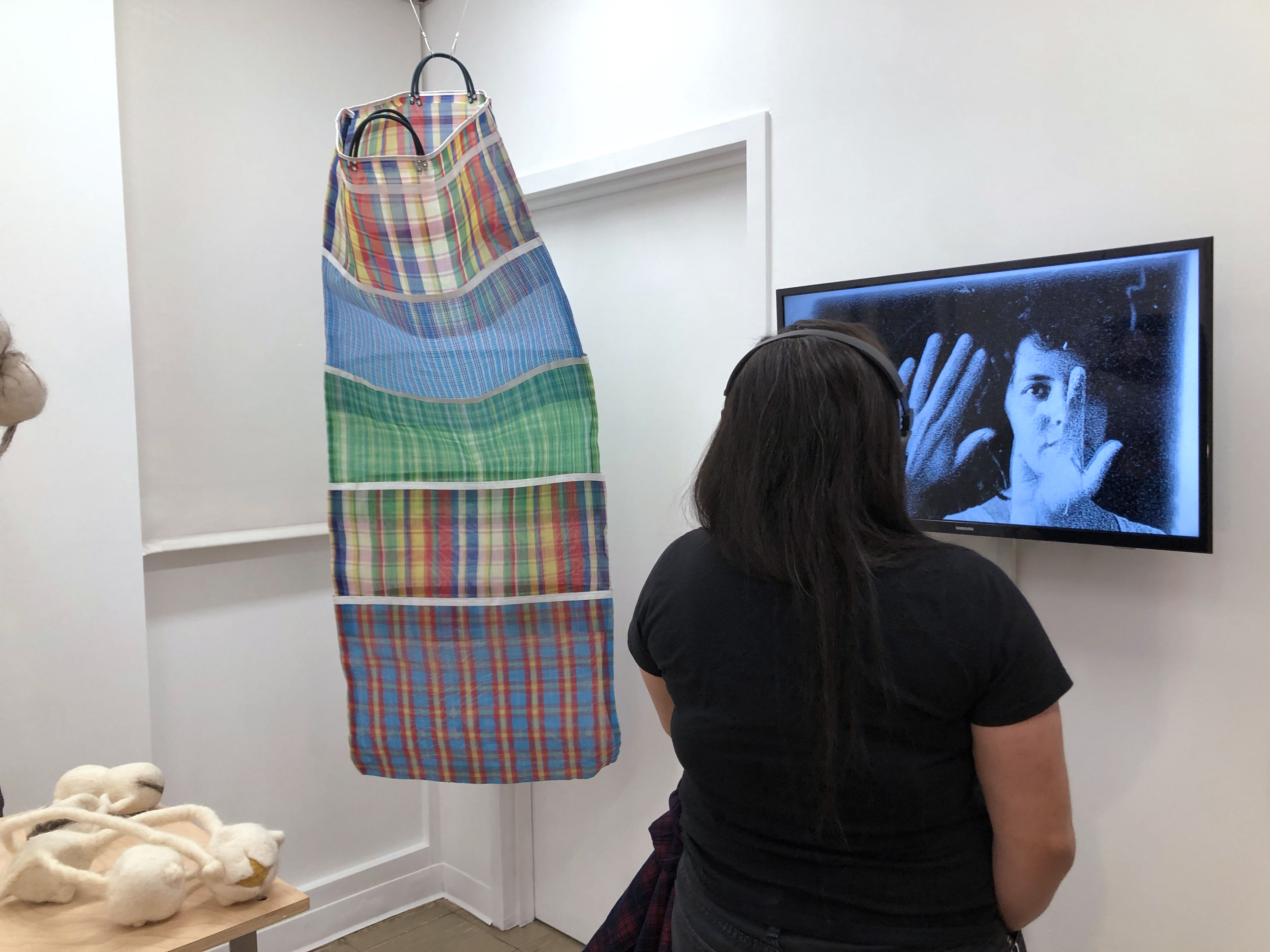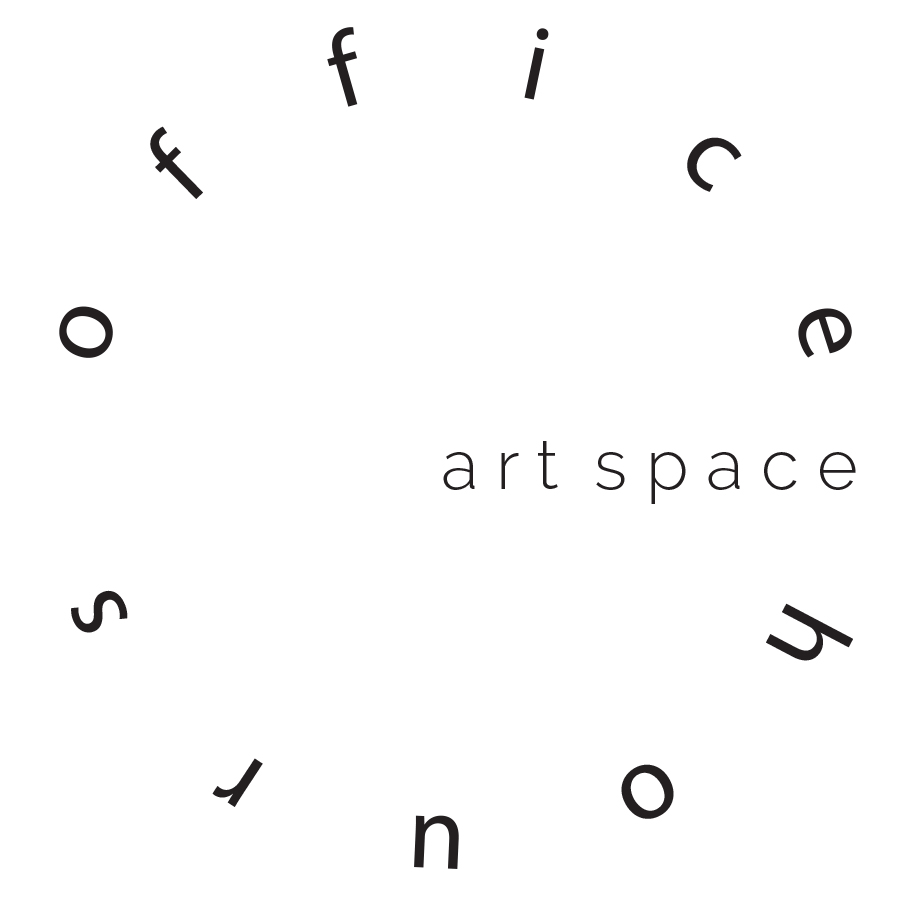insistent
![]()
![]()
![]()
![]()
![]()
![]()
![]()







February 16 2023 - March 23 2023
Dicky Bahto + Sara Davachi
Bonded by Felt Collective
Aimee Goguen
Valnuool Gurmu
Dulce Soledad Ibarra
Zara Kuredjian
Office Hours’ second exhibition brings together works on paper, video, sculpture and textiles that are materially or conceptually conceived through multiplicity, accumulation, layering, obsession or repetitive labor. Insistent features works by current CSUDH students and emerging and mid-career artists from Los Angeles and the Bay Area.
The Bonded by Felt Collective are:
Grisabel Alfaro
Jon Steven Camacho
Gabriel Carrillo
Melissa Cervantes
Dempsey Craig
Jenifer Dang
Tatiana Estrada
Cynthia Flores
Isabel Flores
Jon-Eric Foote
Marc Gonzales
Mark Gonzalez
Natalie Gutierrez
Christyle Hill
Faith Hills
Hicsumy Jimenez
Selena Najar
Edgar Perez
Ariana Rodriguez
Nayely Santos
Jesus Tamayo
Uriel Velarde
INSISTENT
Matthew McGarvey
Entering the “Office Hours” art space, a space for art literally occupying an office at CSU Dominguez Hills, I was confronted with a density of materials and forms straddling the ritual and the mundane. I was immediately drawn to the video by Dicky Bahto and Sara Davachi, in which reaching, gesturing hands move, merge with and emerge from blue cyanotype and super 8 layers, seemingly searching for a place to remain situated, but not finding it, producing a synesthetic sensation built of the sight of a hand which signs and the feel of a hand which touches.
A similar large gesture, beautiful but grotesque, occurs in Aimee Goguen’s painting of maggots, which could be stars, or which seem to float on a bed of stars. Are we looking down or are we looking up? The elements multiply and we are out of our depth because numbers, maggots and stars don’t stop, while we do.
The felt pieces by the Bonded by Felt Collective multiply throughout the space. They resemble pupa, viruses, appendages, microorganisms, tennis balls, cell division, spines, hairstyles, ribs, flesh. Without touching, one still can feel the texture which dictates or at least constrains the form the matter enters… The felt calls for spheres, it calls for cones, it reaches out and transforms according to the relations of felt and hands.
Zara Kuredjian’s zinc staffs, accretions of metal not felt, feel sacred more than secular, existing in balanced opposition to Dulce Soledad Ibarra’s shopping bag. In Soledad Ibarra’s performance, she moved inside the bag. As with Valnuuol Gurmu’s woven bus schedule, what we usually have and use—the bag, the schedule—is shown also to have us, to hold us and to form our motions and our intentions.
A bus schedule is a very simple item, a printed tool which anyone can use. It presents symbols representing motions of buses so that we can catch those buses at certain places and times and be moved by those buses to other places and times. It’s easily held in the hand, scanned with the eye. It stays distant and well-behaved, giving us information with which we can calibrate our motion and morning schedule. And yet this schedule of course also has us, pulling us through the day. The city and the bus have us the way our bodies have our blood cells. Gurmu’s gesture moves away from the easy sense of control which goes along with representation and function, moving down to the level of the material, such that the schedule becomes a visual pattern and a tactile system, a material of weaving. The representational tool function disappears and it is as if we tumble into the weaving paper, into the materiality under the ideas.
It’s strange that we are so material, embodied amidst myriad material flows, of flesh, of grain, of water, of microplastics, of viruses, as lungs breathing oxygen and exhaust, as tissues rhythmically pulsing, digesting, as webs of electrical arc in a chemical soup in a bone… so very, vulnerably material… and yet it is so difficult to merge ourselves, our thoughts, our attention, our feelings, with this ubiquitous materiality, which proves somehow hollow or slippery, evasive, elusive, coy.
And yet it’s a theoretical situation easily remedied through action, through tactile involvement, through testing and pressing and modulation.
This city is a machine, pulsing with jagged energies and rhythms. From a distance it may appear to be a large and messy conglomeration of objects, but it isn’t. It’s a network, a milieu of flows, a system of walls and displacements, a trembling tissue of pulses and spoken words and gestures and signals. In one part of the city fast-repeating needles transform rolls of cloth into wearable garments, the material spooling out and the commodities piling up; in another part the reeling film has been replaced by ever-accumulating digital slices of gridded values, also piling up and repeating and differing, according to the repertoire of the machineries, episode after episode repeating on millions of screens, payment after payment occurring.
To enter the Office Hours art space is to step aside and to gain some perspective, to move away from the city’s endless functioning by diving under it. The objects here, meticulously and obsessively constructed by human hands, offer a place for time that is in some strange contrasting relation with the clouds lifting from the oil facility just South of campus.
Matthew McGarvey is a musician, theorist, and radical educator. He teaches at CSUDH in Labor Studies and at CSULB in Political Science, and works with the Unthem recording collective as well as performing improvisationally with painting, installation and dance.
https://matthewscottmcgarvey.org/
